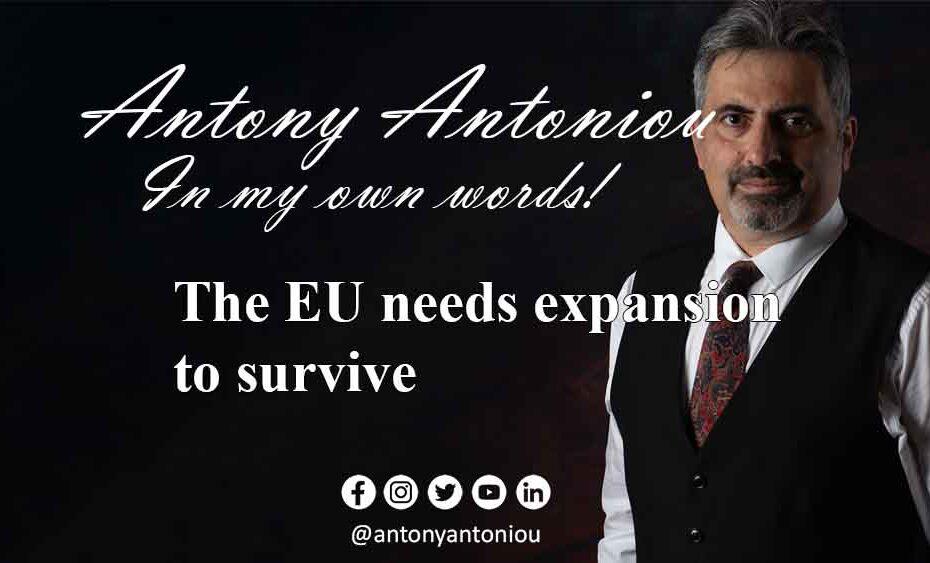The EU needs expansion to survive
The Future of EU Enlargement: Ambitious Goals and Complex Realities
Introduction
In a recent speech by Charles Michel, the former President of the European Council, the topic of European Union (EU) enlargement took center stage. Michel called for the EU to expand and welcome new members by 2030, deeming it both ambitious and necessary. With countries from the Balkans to Eastern Europe and the Caucasus expressing their desire to join the EU, the bloc’s current membership of 27 could potentially grow to 36. This renewed focus on EU enlargement comes in the wake of Russia’s invasion of Ukraine, marking a significant shift in attitudes towards expansion. In this blog post, we’ll delve into the aspiring EU member states, explore the reasons for the slow progress up until now, analyze the changing attitudes, and assess the likelihood of new members joining in the near future.
The Aspiring EU Member States
Let’s first take a closer look at the countries seeking EU membership. The Western Balkans group includes Albania, Bosnia and Herzegovina, Kosovo, Montenegro, North Macedonia, and Serbia. Plans to integrate Western Balkan countries into the EU trace back to a 2003 summit where EU member states affirmed that the future of the Balkans belongs within the European Union. Another group aspiring to join the EU is the Association Trio, consisting of Ukraine, Moldova, and Georgia. These three countries formally applied for EU membership following Russia’s invasion of Ukraine.
The Slow Progress and Complicated Process
Why has EU enlargement been such a sluggish process? Firstly, the EU accession process is intricate and lengthy. A country must first meet specific criteria to attain candidate status. Then, existing EU members must unanimously agree to initiate formal negotiations based on an agreed framework. Throughout these negotiations, the aspiring member must align its administrative and institutional infrastructure with EU standards across various areas, including justice, security, agriculture, taxation, and competition. These significant reforms, coupled with numerous disputes that require resolution before entry, have contributed to the sluggish progress.
For instance, North Macedonia only resolved its naming dispute with Greece in 2019 and settled a separate dispute with Bulgaria in 2022. These disputes have also stalled Albania’s accession, as its candidacy is tied to North Macedonia’s. Kosovo’s path to EU membership faces hurdles due to the fact that five EU members, including Spain, Greece, and Romania, do not recognize Kosovo’s independence.
Lack of Enthusiasm for Expansion
Beyond the complexities of the accession process, there has been a notable lack of enthusiasm for expansion among existing EU member states. This hesitance is fueled by several factors. The 2004 Eastward expansion brought in countries like Poland and Hungary, which have faced criticism for failing to uphold EU standards on democracy and the rule of law. Consequently, some Western European states are reluctant to admit new members.
However, Russia’s invasion of Ukraine in February 2022 has reignited discussions about EU enlargement. Expansion is no longer merely a political matter; it has become a moral imperative for the EU. Many within the EU now believe that keeping potential members, such as Serbia, waiting for so long makes them vulnerable to Russian influence.
The Timeline Dilemma
While there is a renewed enthusiasm for enlargement, the timeline remains uncertain. Charles Michel proposed enlarging the EU by 2030, but the European Commission downplayed this by emphasizing a merit-based approach rather than setting a fixed date. The EU also rejected Ukraine’s request for a fast-tracked accession process. This internal debate on how to approach enlargement will come to a head in the coming months.
The Need for EU Reform
To add to the complexity, the EU itself requires significant reform before admitting new members. The current EU structure is not designed to accommodate 30-something member states. Some EU countries, including France, Germany, Spain, and Italy, advocate for a shift to qualified majority voting to expedite decision-making and prevent individual states from holding policies hostage.
The EU will need to address pressing questions about how to handle new members’ entry, including potential changes to the European Parliament, budget adjustments, and agricultural policy reforms. These issues will be pivotal in shaping the future of EU enlargement.
Conclusion
EU enlargement has faced numerous challenges over the years, but recent geopolitical shifts have brought it back into focus. While the EU expresses ambition and determination to expand, many obstacles remain, both within the aspiring member countries and within the EU itself. The next few months will prove crucial in determining the direction of EU enlargement, and the outcomes of upcoming meetings and summits will be closely watched. Achieving the goal of enlargement by 2030 may be ambitious, but it’s a goal that reflects the evolving priorities and challenges of the European Union on the world stage.

